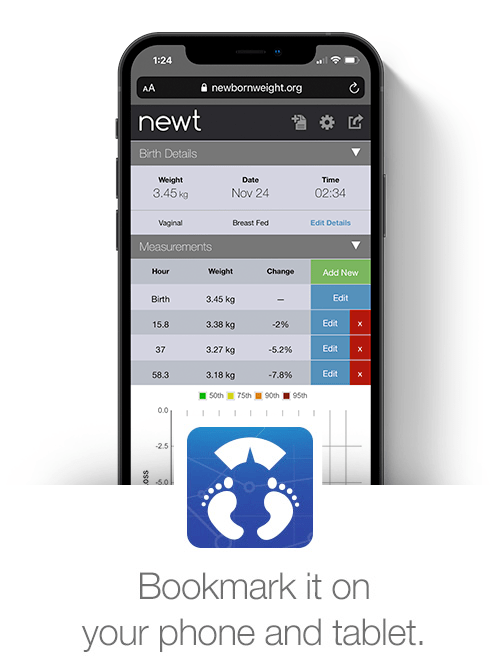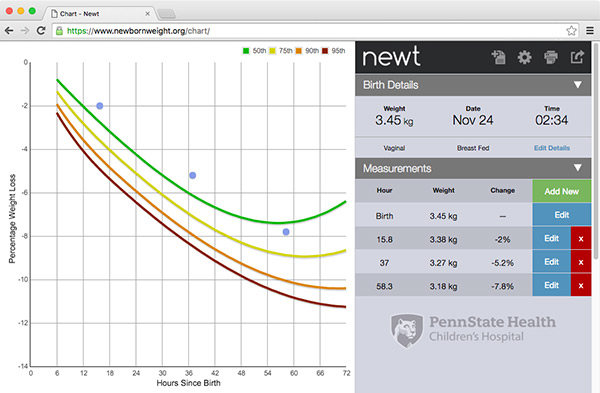Newborn Weight Tool shown to have utility in low- and middle-income countries
(Ginsburg AS et al., Scientific Reports 2023;13:14128 [https://www.nature.com/articles/s41598-023-39773-4])
In a study funded by the Bill and Melinda Gates Foundation, investigators compared weight trajectories in the first 5 days after birth among newborns born in a low- and middle-income countries (LMIC) cohort with those used to develop NEWT. Between April 2019 and March 2020, a convenience sample of 741 singleton healthy breastfeeding newborns who weighed ≥ 2000 g at birth were enrolled at selected health facilities in Guinea-Bissau, Nepal, Pakistan, and Uganda. Using a standardized protocol, newborn weights were obtained within 6 hours of birth and at 1, 2, 3, 4, and 5 days. The trajectories of early newborn weight change in the new cohort were largely similar to those in NEWT, with the exceptions that initial newborn weight loss in Guinea-Bissau was more pronounced than those on NEWT and newborn weight gain following weight nadir was more pronounced in Guinea-Bissau, Pakistan, and Uganda than those in NEWT. The investigators concluded that the data demonstrate that NEWT may have utility in LMIC settings.
Paul recognized for pediatric research excellence
Dr. Ian Paul has been selected for the 2022 American Pediatric Association Research Award, which recognizes an investigator who has advanced pediatric knowledge through excellence in research.
Newborn Weight Tool marks fifth anniversary of helping providers track infant growth
The Newborn Weight Tool (NeWT), developed by Dr. Ian Paul, a pediatrician and professor of pediatrics and public health sciences at Penn State College of Medicine, is enjoying a good measure of online celebrity..
The tool allows providers to compare a newborn’s weight loss against data from more than 160,000 infants. It has earned 2 million page views since it debuted in 2015 and has been used by providers in 179 different nations.
NeWT’s global reach doesn’t surprise Paul, who created the tool with help from Penn State statistician Eric Schaefer and researchers from the University of California, San Francisco and Kaiser Permanente. “Every provider who cares for babies needs this information,” Paul said.







